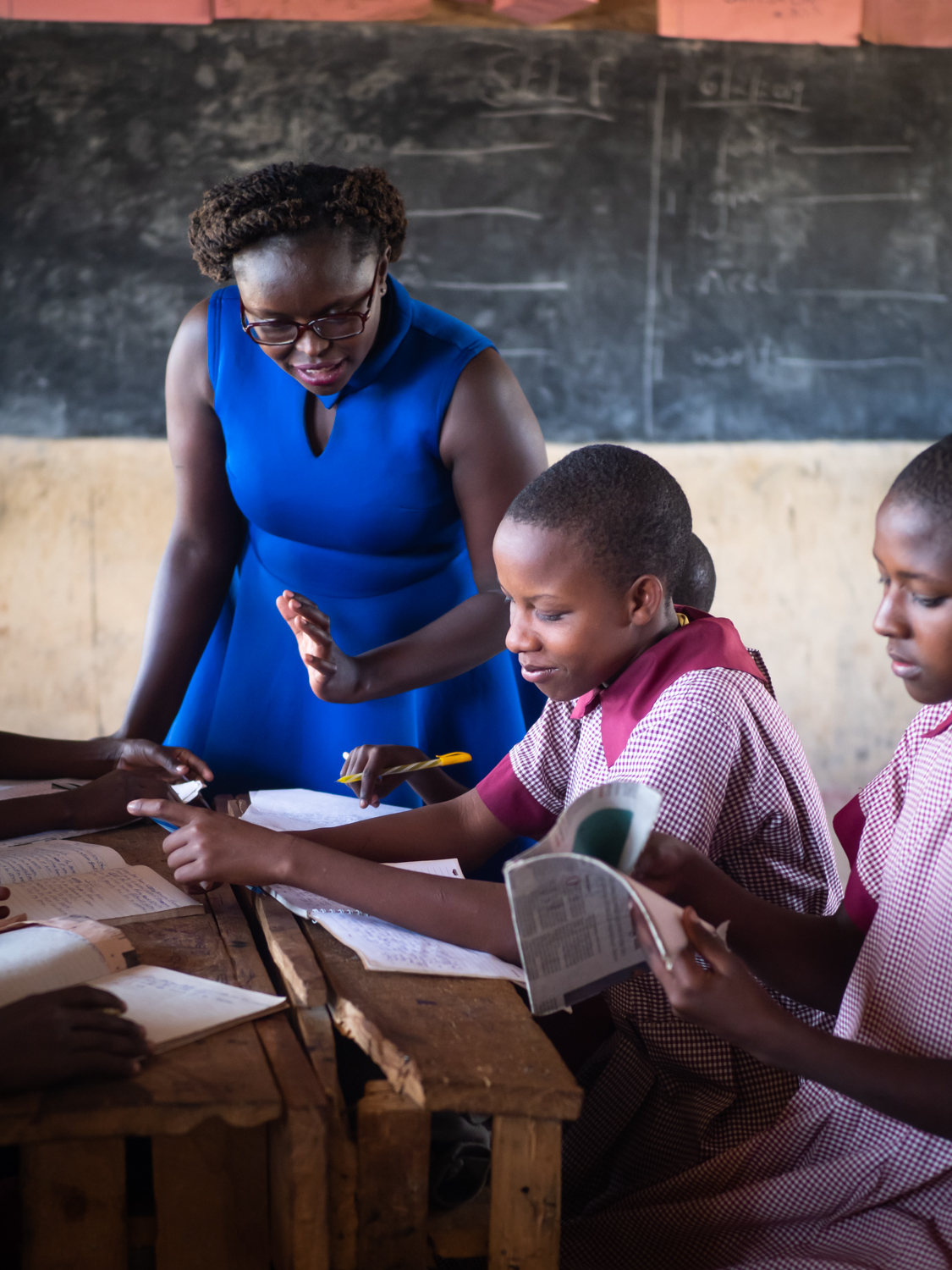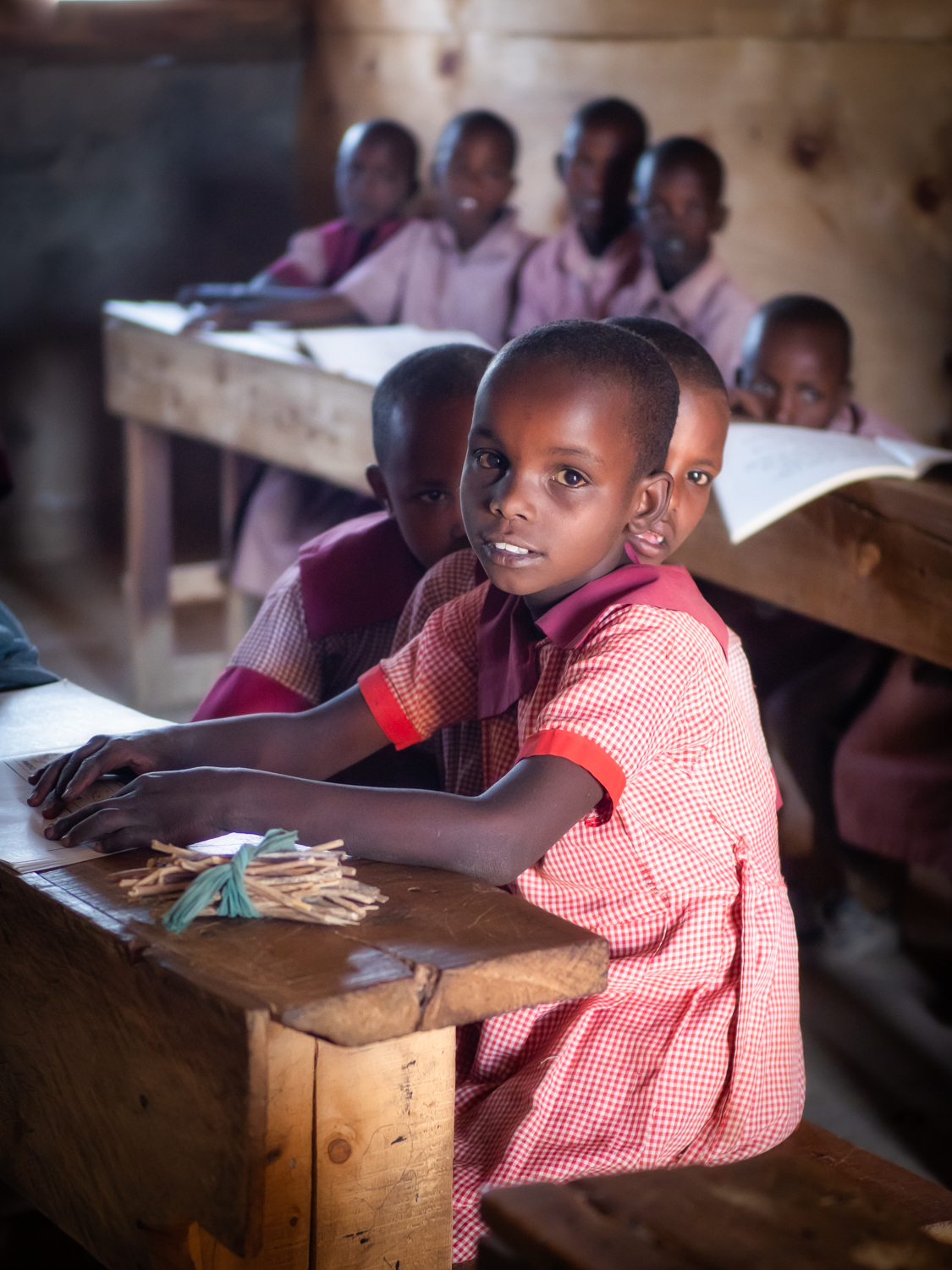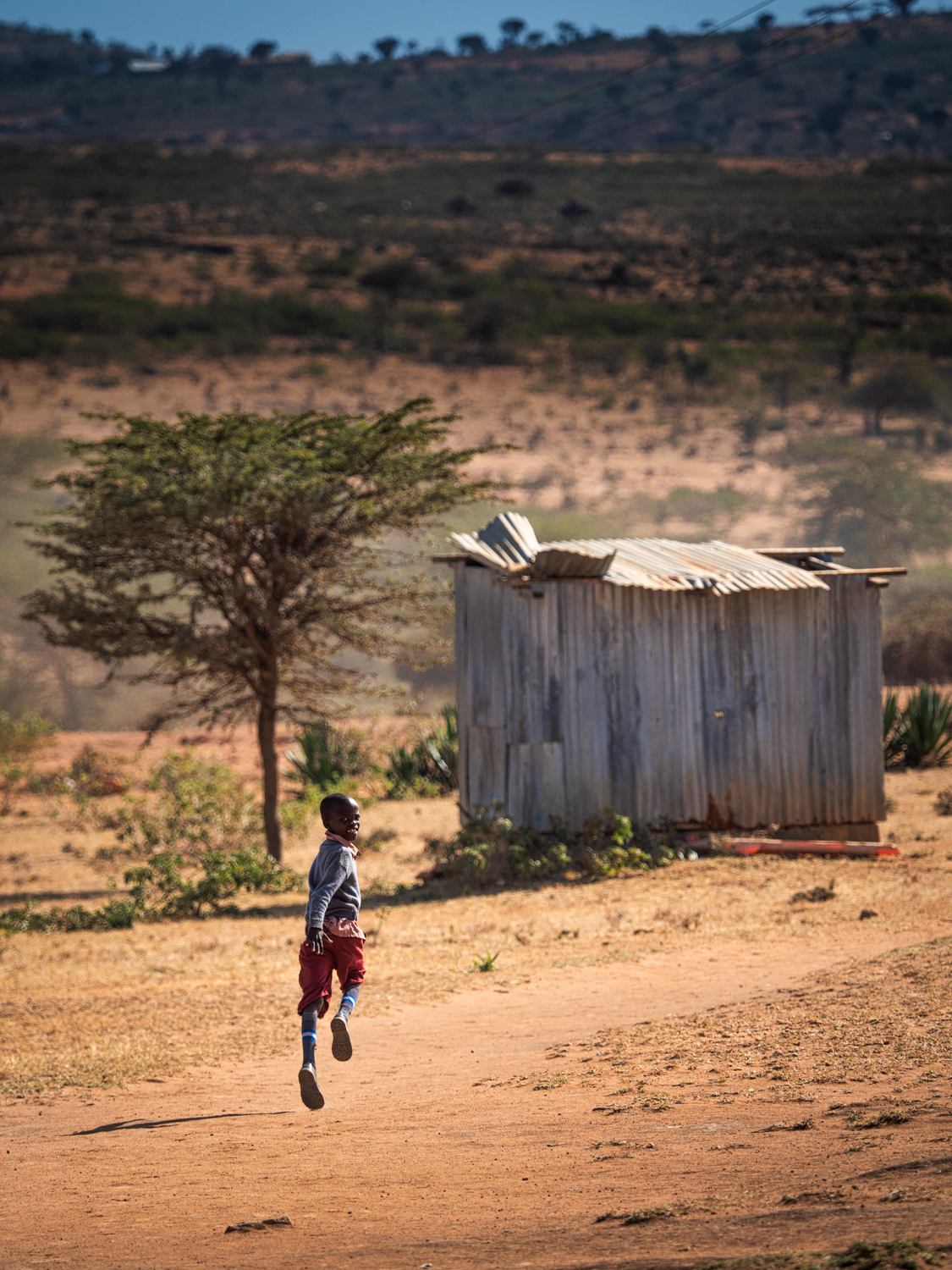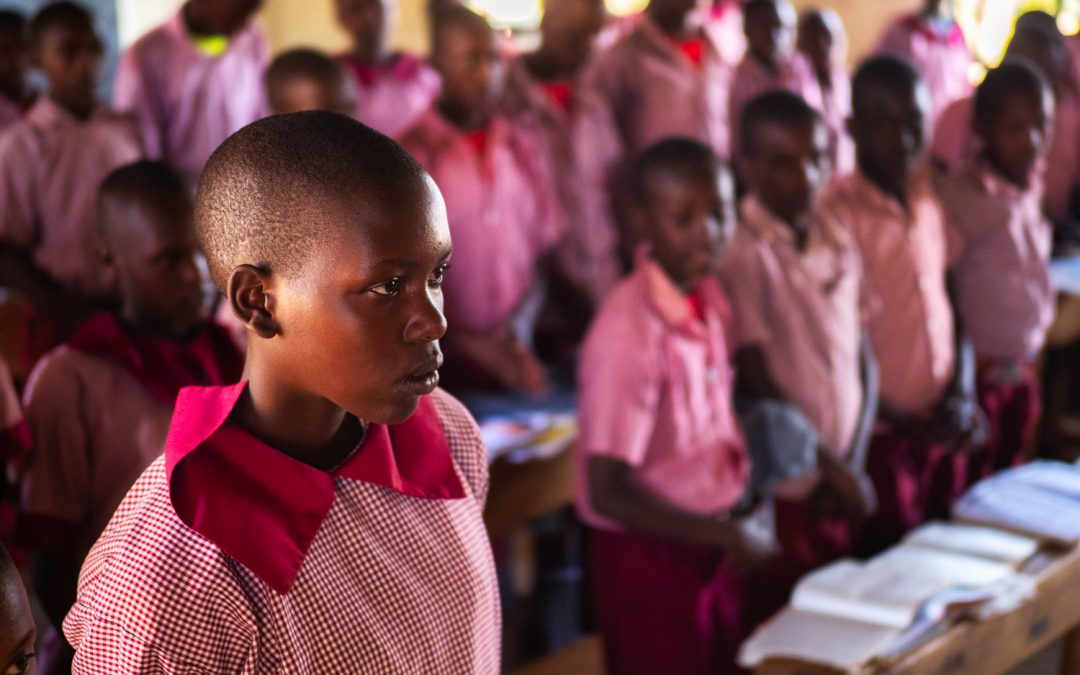Poverty is personal

Rosalia at work
Our time in Kibera reminded us that human deprivation at a massive scale is difficult to process. But Rosalia Waithera challenged us to confront it on a personal level. A 2013 Daraja Academy alumnus who is now a university graduate and a primary school teacher, Rosalia was fearless in her account of her life before Daraja. We didn’t have to ask if it was difficult to discuss…it was. But she didn’t miss a beat as she described it, because she knows the stakes for others moving in her wake, which now includes her own students. For their sake, she confronts her past with a steely, selfless candor. And she is one to stay focused on end results.
“Life before Daraja was…a mystery”, she told us. “We lived with not knowing what will happen the next day.” We can convince ourselves that children are blissfully unaware of their poverty. How could they be otherwise? They’re not equipped to see the bigger picture. But Rosalia wants you to know that she felt the pain of it with each passing day. She lived in a rural area but went to school in a more densely poplulated and (relatively) better-off town. Every day, she came to school with a lunch consisting of ugali (a cornmeal mush that is a common peasant food in Kenya) and cabbage. Her family could not afford anything better. “You would get questions” said Rosalia. “Why do you carry the same food every day? It was humiliating.”
“But I still believed in myself”, she is quick to point out. “I still wanted to be something in my community”. And there she sits, a testament to her belief, her force of will, and her abiding intellect. It would be trite to say that this woman would not have made it without Daraja. I wouldn’t bet against her. But Rosalia will be the first to tell you that it is really hard to imagine what that would look like. And she has asked herself, by her own account, “a million times”. The question remains unanswered; even for tough-as-nails Rosalia, it’s difficult to go there.
What Brought Us Here
We went with Rosalia to visit Reteti Primary School as part of the Daraja Photography Project. Rosalia was one of the Daraja graduates whose story we wanted to tell. The early trajectory of her life is all too common. Her prospects for continuing her education after primary school would have been non-exisitent if she had not studied so diligently and scored such high marks on her standardized tests. She now teaches at Reteti, among other schools in the area. Her students are twice blessed by her presence. Not only are they lucky to have a teacher so capable, passionate and dedicated, but also to have an example of what is possible for them. Rosalia is a living testimony to the possibility of escaping your circumstances, no matter how hard they may be.
Our job in Kenya was to document and convey the story of Daraja, in support of their fundraising efforts. And to get that accomplished, we decided it was best to tell the stories of the girls of Daraja. For each Daraja Academy graduate, there is a back story. And in each of those stories is a moment – an inflection point that brings them to Daraja. We meet them at the edge of a chasm, the gap between their personal potential and the access they need to realize it. That is why the school bears the name Daraja, which is Swahili for “bridge”. Each girl has within her the courage, talent, and perseverance to find her way to that precipice. Daraja was their path across it.
So we travelled with women like Rosalia to explore those roots, to see what their lives were like and to viscerally understand their circumstances before they showed up for Day 1 at Daraja. As a westerner, places like Reteti Primary School will leave you breathless, wondering how in the world a child could ever muster the strength and the will to even imagine a positive outcome. Nevertheless, 100% of Daraja girls made their way to that crossing point.
When I first heard that Daraja means “bridge” in Swahili, I thought “okay, yeah, that’s nice”. I now have a new perspective.

Production – Shooting at Reteti Primary School

This school is a photographer’s dream, from an aesthetic point of view. The classrooms are designed to let natural light in, because elecricity in primary schools across Kenya can be unreliable at best, and often absent altogether. There is a noticeably diffuse, reddish cast on everything, due to the red earth dust being kicked up constantly. In the indoor spaces, the light tends to pool under skylights and around windows, contrasting with the surrounding, more shadowy areas. These wondrous light conditions give the place its own visual drama and emotional weight. You just have to be smart about composing your shots to exploit the character of it. And if you find visual interest in frayed, worn, or decaying things, you will find plenty of that to add to your composition.
But the crux of the matter, from a storytelling perspective, is the students. Our story is about Rosalia, but this is how (and where) her story started. Any of these kids could be her. But more poignantly, most of these kids, by dint of the law of averages and simple math, won’t receive the opportunity that she got. Our challenge as photographers is to convey empathy for their struggle, but respect for them as individuals. It’s not an easy line to walk. For me, the answer is to push the envelope when I am on location. I can always dial it back after the fact, but I can’t be retroactively more aggressive in going for the shot. If I miss it, there is no second chance. So I approach the shoot in a way that may seem “invasive” to some. I am right in there with the kids, trying to capture the curiosity, wonder, confusion, boredom, anger, humor, etc. I want all of it. This is, after all, who Rosalia once was and where she came from. And if we are going to convey her story, we should honor the courage she showed. So we have tried to do what Rosalia did: tell an uncomfortable truth with unfailing dignity. Let us know if you think we succeeded.

